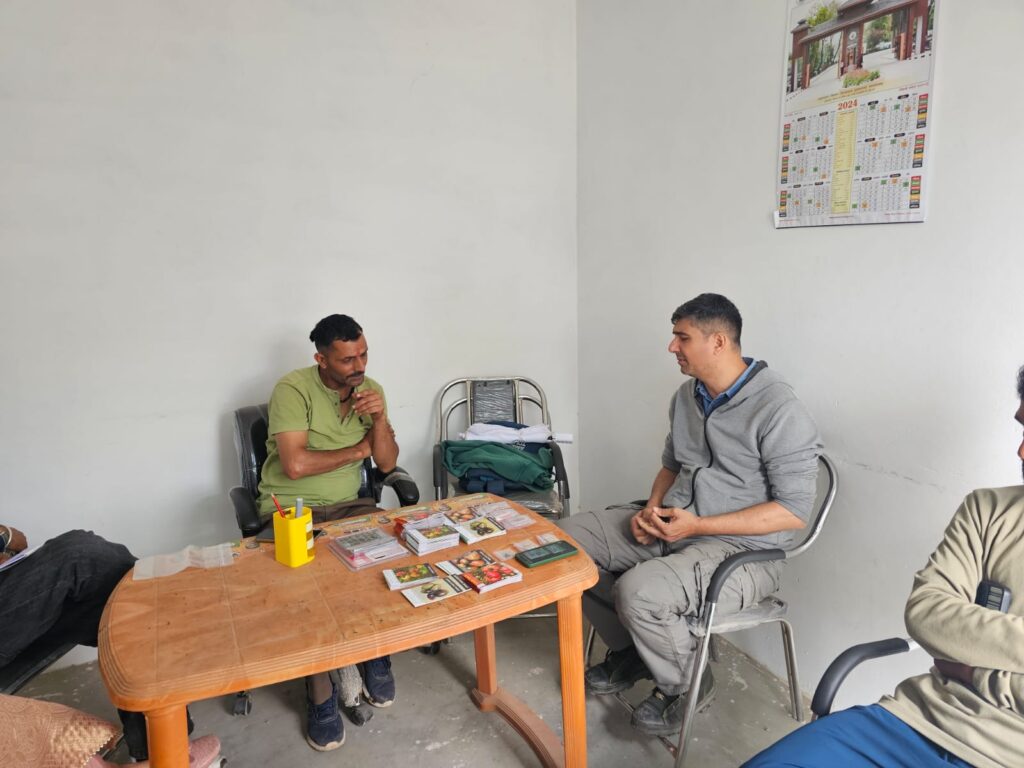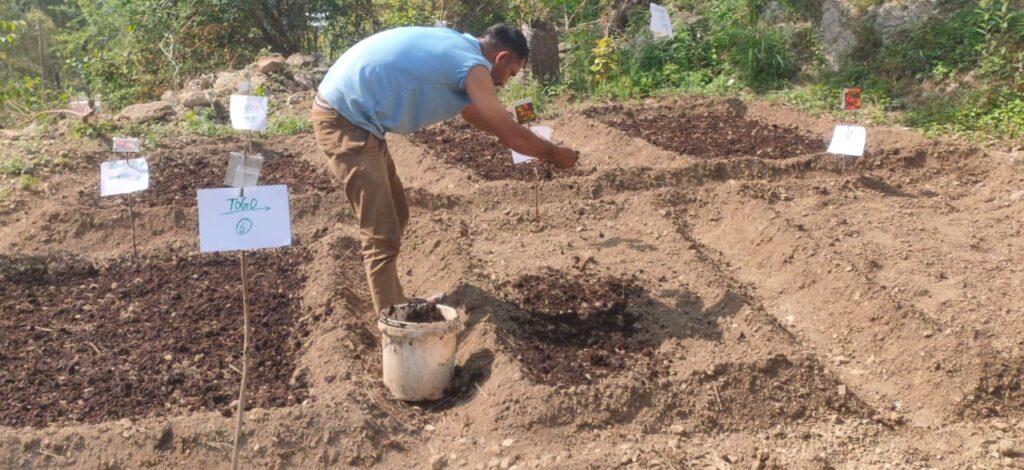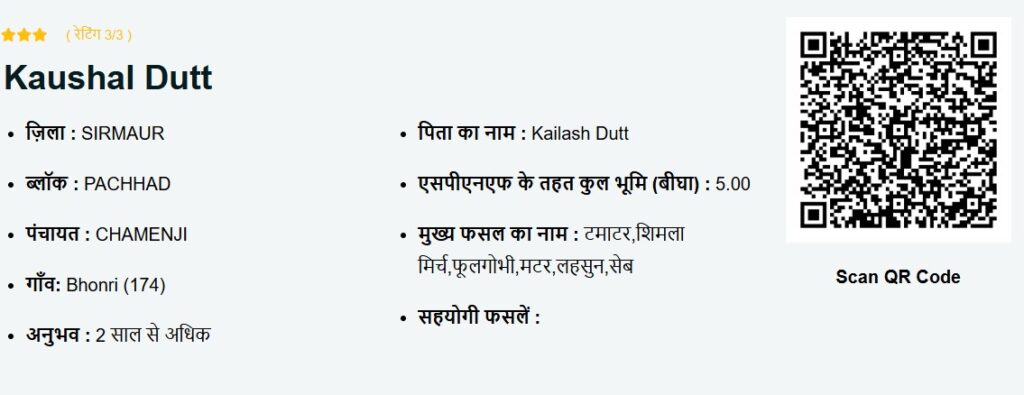Sowing the Future - Open Pollinated Seed Bank

PNFPC Starts Its First Tomato Seed Journey with GDT
Something special has begun in the hills of Himachal Pradesh.
Pachhad Natural Farmer Producer Company (PNFPC) has taken its first big step toward self-reliant and sustainable farming. With support from GDT, the company has received a special batch of rare tomato seeds marking the start of a new journey where farmers won’t just grow food, but also grow seeds, share them, and build a local seed system. This isn’t just about growing tomatoes. It’s about giving farmers more control over their future and helping them build something long-lasting. Thus it was decided to choose seeds which were Organically Grown, Open Pollinated and also had a consumer market for the fruit.
Gram Disha Trust, with its social enterprise Jaivik Haat, decided to undertake this participatory experience with the FPC. This is a food systems experiment, where a Sub-Tropical zone of Himachal Pradesh shall produce multiple varities of Tomatoes for which Jaivik Haat shall endeavor to provide an assured market in collaboration with its B2B partners. If this experiment is successful, then the farmers shall save these Open Pollinated (OP) seeds in their Seed Bank as a first. This should then be used to kick start the seed bank operations in the Sirmour region with the FPC.
On 9th May 2025, a meeting was held in Wasni, Sirmour, where GDT team members met with the PNFPC Board of Directors to hand over seven unique Open Pollinated and Organically grown tomato varieties. These included –
Black Plum Tomato
Atomic Grape Tomato
African Togo
Kashi Tomato
Red Ruffled Tomato
Giant Apple Tomato
Togo Tomato
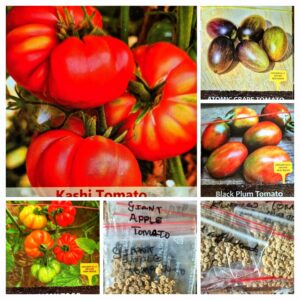
In total, 102 seed packets, 1 gm each, were given. Each packet can grow about 100 plants, so hundreds—and soon thousands—of tomato plants will be growing across local farms.
The FPC board and lead farmer Mr Kaushal Dutt discussed that the seeds shall be distributed among multiple farmers (upto 3) of the FPC to first develop a sapling Nursery. This shall be follwed by select farmers (upto 7) who will then grow the crop to supply to the market. The farmers who handle the nursery shall also ensure Varitetal Purity and seed multiplication in a controlled production system.
As the Sirmour region is a large producer of tomatoes, this is important to prevent cross-pollination window. Although tomato self-pollinates, care is to be taken nonetheless. Temporal isolation was assured by the farmers, as a large number of regional farmers had already moved their crop to the fields and it was unlikely that when that crop flowers, it shall coincide with the flowering window of this crop. Thus the process of isolation had already begun. Nonetheless, care was to be taken going forth, spatially as well.
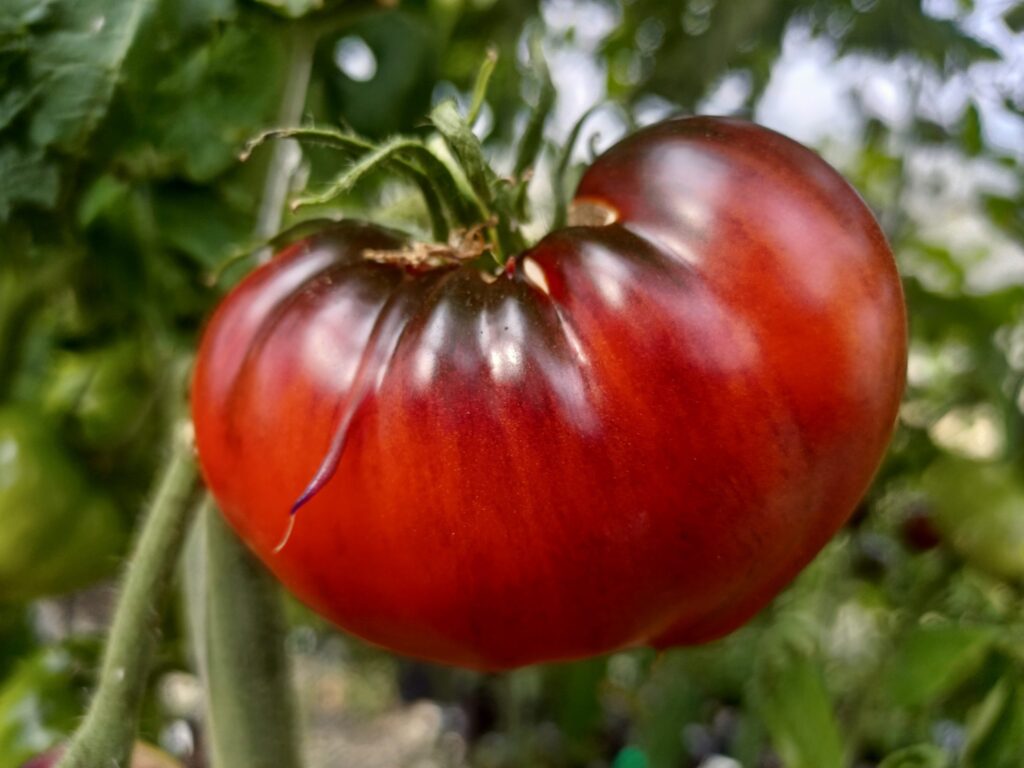
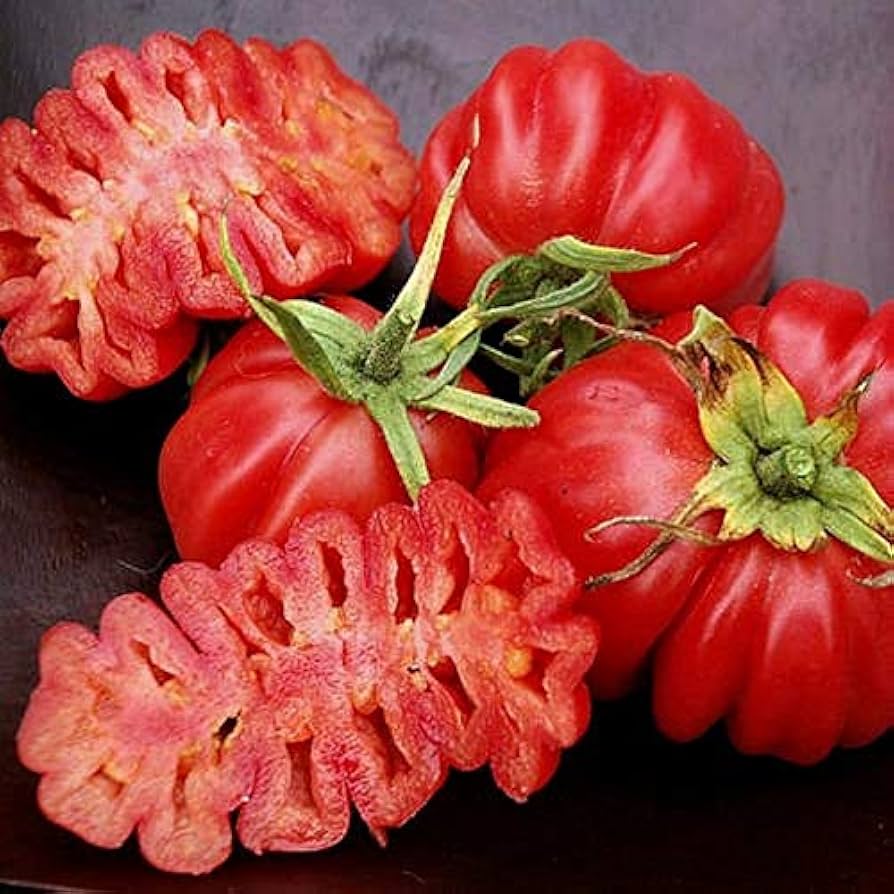
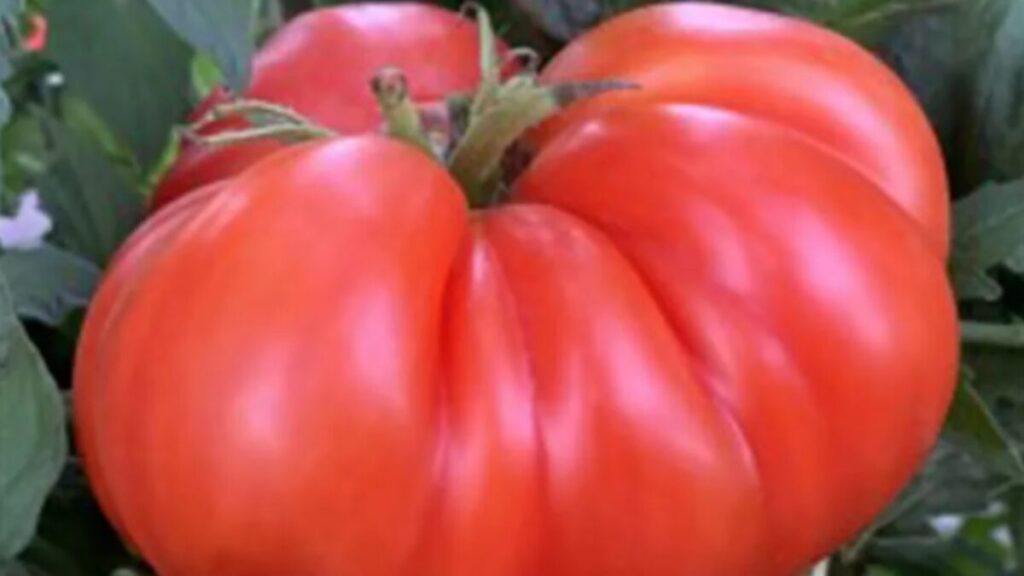
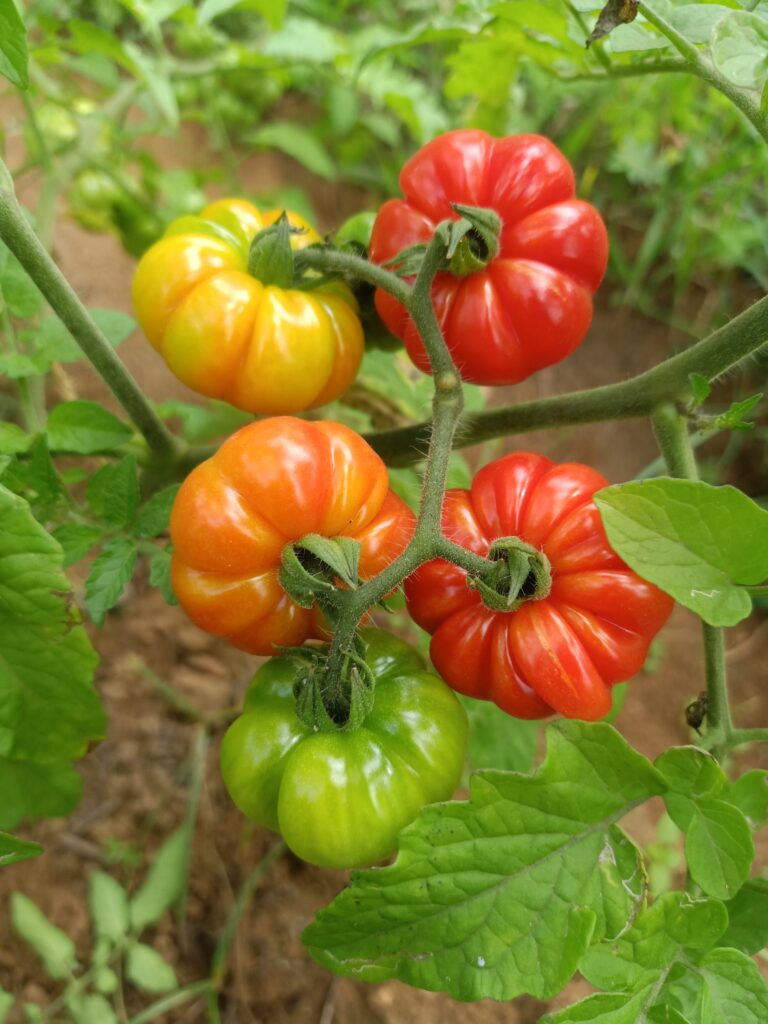
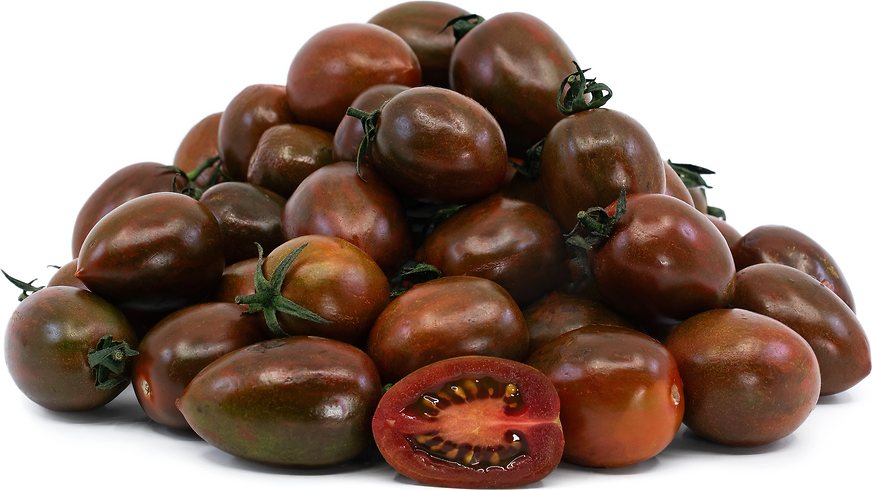
Why These Seeds Are Special ?
These tomatoes are not the common types seen in markets. They are rare, high-quality, and valuable. The idea is to introduce new, better-paying options for farmers and help them stand out in the market.
But more than selling tomatoes, this project is about teaching farmers how to produce and save seeds—so they can reuse them in the next season and even share with others.
“This is not just about growing tomatoes. It’s about helping farmers grow seeds for the future,” said a PNFPC board member. By learning how to create seeds from their own harvest, farmers reduce their dependency on seed companies and gain a stronger role in the farming system.
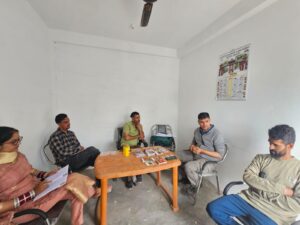
Who Will Get These Seeds?
The seeds are not being handed out to everyone. The PNFPC Board has decided to give them only to those farmers who are honest, hardworking, and serious about natural farming.
“We’re not giving these seeds out like freebies. We’re handing over a responsibility, to develop seed bank” said a GDT team member.
This way, the seeds will go into the hands of people who will truly care for them and make the most of this opportunity. Learning and Earning Together
This project also gives farmers a chance to learn about new tomato types, understand how they grow, and explore their market potential. Because these tomatoes are different, they can attract better prices—and since GDT has promised to buy back the produce, farmers have a secure market waiting for them. It’s a win-win—learning, growing, and earning, all from one initiative. More Than Just Seeds
Mr Kaushal Dutt is the chairperson and lead farmer of the FPC and has taken the responsibility onto himself to kick start this activity. He is also a 3-star rated farmer under the Government of HP CETARA-NF system.
This first tomato seed distribution is not just the start of a farming project—it’s the start of a new chapter for natural farmers. It’s about –
- Empowerment – Letting farmers grow and save their own seeds
- Innovation – Bringing exciting, new tomato varieties into farming
- Sustainability – Building a seed bank the community can trust
- Community Growth – Choosing committed farmers to lead the way
Creation of Seed Banks is also one of the core actions which the FPCs had decided as part of the ACROPICS workshop held in September 2024. Gram Disha Trust is a Sustainable Agroecological Systems (SAS) partner in the global ACROPICS network and supporting the FPC with this transformation. It is supporting the FPC with creation of seed banks in multiple locations in the district.
As these seeds are sown into the soil, they carry more than just future plants—they carry hope, confidence, and change. We look forward to watching the tomatoes grow—but even more, we’re excited to see the farmers grow stronger together.
